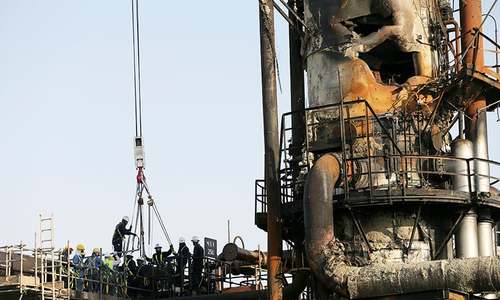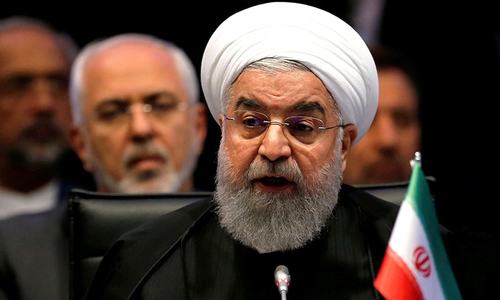WITHOUT doubt, the current crisis in the Gulf pitting Iran against the US and Saudis is one of the most combustible in the world.
One wrong move from either side can easily spiral into a conflagration of ugly proportions that will send the global economy into a tailspin and destroy regional peace.
Therefore, all attempts to defuse tensions must be welcomed and encouraged.
Pakistan is in the unique position of having ties with all three sides; though the relationship with the US tends to go up and down, it is currently on a stable course, while the Islamabad-Riyadh equation is a cordial one. As for ties with Iran, though these may be less than ideal, there is a realisation in both Islamabad and Tehran that relations between them need improvement.
It is in this context that Prime Minister Imran Khan’s offer to Mr Trump in New York to mediate between Saudi Arabia and Iran must be seen. Speaking on the sidelines of the UN General Assembly, Mr Khan said he had discussed the issue of mediation with both US President Donald Trump and Saudi Crown Prince Mohammad bin Salman, and had also brought up the issue with the Iranian president. “We’re trying our best,” said Mr Khan, adding that war between Iran and Saudi Arabia would be “a tragedy for all”.
The prime minister’s effort to promote regional peace must be lauded. However, there must be absolute clarity where the terms of such mediation are concerned, especially in a dispute as complicated as the one involving Riyadh and Washington on one side (mediating between Saudi Arabia and Iran would invariably involve the US) and Tehran on the other.
It was the Trump administration that precipitated this crisis by scuttling the Iran nuclear deal; ever since, the US president has been issuing a combination of threats and peace offerings to Iran — mostly the former.
If Pakistan has been asked to play mediator between Riyadh and Tehran (when asked, Mr Trump’s response was ambiguous) it can ill afford any U-turns by the American or Saudi administration.
On its part, Pakistan would have to assure Iran that it is not in the Saudi-American camp and would play a neutral role to promote peace.
As home to both Shia and Sunni communities, Pakistan must realise the sensitivities involved in the Saudi-Iran spat.
Once the terms are clear, instead of indulging in public diplomacy, Pakistan should task its senior Foreign Office hands — who have a thorough understanding of the respective Saudi and Iranian administrations — with establishing contacts with both sides and start the process through the backchannel.
The risks involved would be considerable, but Pakistan can play a major role for peace if it is able to pull off a diplomatic coup and reduce tensions in the Gulf.
The alternative — of tensions boiling over — paints a grim scenario for the entire region.
Published in Dawn, September 27th, 2019














































